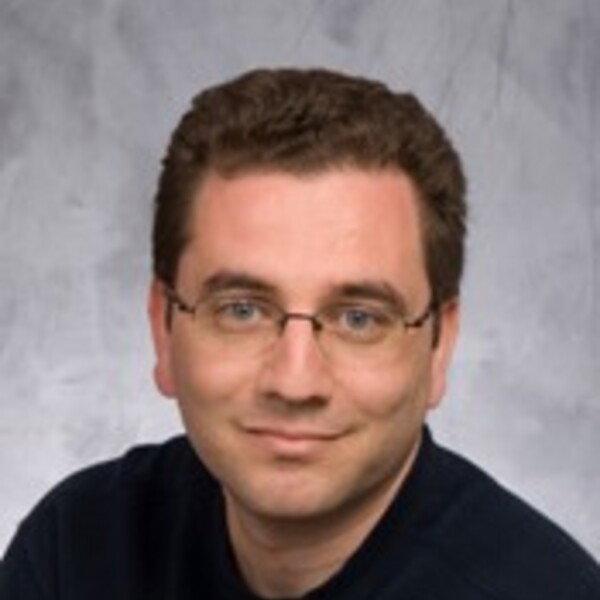Nuclear Medicine

Dr. Amer Shammas - Divisional Head
The Division of Nuclear Medicine comprises faculty members from university-affiliated teaching hospitals of the University of Toronto including The Hospital for Sick Children, Sunnybrook Health Sciences Centre (SHSC), St. Michael's Hospital (SMH), and Joint Department of Medical Imaging (JDMI) at Mount Sinai Hospital (MSH), Women’s College Hospital (WCH), and the University Health Network (UHN -- Toronto General Hospital, Princess Margaret Cancer Centre, and Toronto Western Hospital).
Site Overviews
Sunnybrook Health Sciences Centre
Sunnybrook Health Sciences Centre (SHSC) offers a wide range of Nuclear Medicine diagnostic imaging and Theranostics including combination PET diagnostics and Lu-177 therapeutics for neuroendocrine and prostate cancer. They offer expanded cardiac care services including low-dose CZT SPECT for myocardial perfusion imaging, Pyrophosphate imaging for amyloid workup, and cardiac FDG PET. Our faculty members are collaborating with Augmented Precision Medicine (APM) lab, which is a lab dedicated to precision medicine and the use of artificial intelligence in medical imaging, such as low-dose PET reconstruction techniques, and working on AI/Machine Learning research initiatives.
Joint Department of Diagnostic Imaging (JDMI)/UHN
JDMI at all sites provides clinical and academic service performing large volume of general nuclear medicine cases and PET imaging. The high volume and diverse case mix provide exceptional exposure to complex cases at the medical student, resident, or fellowship level. There is exposure to daily 'hands-on' molecular imaging teaching as well as monthly rounds for trainees. Each of our faculty provides mentorship for trainees and has received numerous teaching awards. The case complexity drives innovative solutions with radiopharmaceuticals and imaging techniques. As an example, a particular expertise has been developed using SPECT/CT Lymphoscintigraphy to identify chylous leaks, and for lymph node mapping in malignancies. At any given time, there are multiple clinical trials of diagnostics (such as PSMA) and therapy (Radium 223). There is currently more than 30 active research with trainees integrated in most including research on PET/CT and PET/MR in multiple malignancies.
The Hospital for Sick Children
The Hospital for Sick Children is internationally recognized for pediatrics. At SickKids, nuclear medicine, provides complete clinical service for children including the conventional nuclear medicine, PET/CT, DXA, HRpQCT, and radionuclide therapy. The exceptional radionuclide therapy unit provides Radioiodine and MIBG therapy for children as well as other innovative radionuclide therapy under clinical trials for variable pediatric oncology patients in Ontario and out-of-province patients. Image Gently and patient safety is one of the top priorities, achieving high-quality imaging with lower dose. The Nuclear Medicine team at SickKids including physicians and technologists is very active in teaching providing unique experiences and training to students, residents, and fellows from the University of Toronto and other Universities. Pediatric Nuclear Medicine team is also active in research and constantly presenting in international annual meetings and publish in major Nuclear Medicine Journals.
St. Michael's Hospital/Unity Health
St. Michael’s Hospital, part of Unity Health Toronto, is an urban academic teaching hospital, tertiary/quaternary referral center and regional trauma center. The Nuclear Medicine Division at St. Michael’s Hospital performs a broad range of general nuclear medicine procedures allowing for a fulsome experience for trainees. Additionally, the excellent collaborative relationships that exist with Cardiology (Nuclear Cardiology) and Endocrinology/ Rheumatology (Bone Mineral Densitometry) foster multidisciplinary dialogue in these areas. A PET/CT program, which is currently in development, will further round out the breadth of the trainees’ experience.
Education
Residency Program
The program offers a two-year position with nuclear medicine in the PGY 6 & 7 years following the Diagnostic Radiology residency program to residents who have completed the Royal College of Canada accredited residency and certification exam in Diagnostic Radiology. The program enables the resident to combine both Nuclear Medicine and Radiology training in preparation for rapidly expanding hybrid and fused imaging techniques and for their future career.
During the two-year program, the residents will have an opportunity to learn a wide variety of Nuclear Medicine imaging techniques and procedures as well as Radionuclide therapy within our affiliated teaching sites, and community hospitals accompanied by structured teaching rounds during academic half-day (AHD). The large number and variety of procedures performed in each hospital allow the residents broad exposure to nuclear medicine specialty.
The program underwent a Royal College Review and received the status of full accreditation with follow-up at regular review. In July 2020, Nuclear Medicine Program has been able to successfully implement the Competence by Design (CBD) curriculum as required by the Royal College of Physicians and Surgeons of Canada.
For more information go to the Nuclear Medicine Resident Program Webpage
Faculty
Our enthusiastic Nuclear Medicine faculty is committed to teaching, supporting, and mentoring throughout the Residency training. Our faculty members actively participate in teaching at the fellowship, resident, and undergraduate levels and contribute to many CME programs. Our faculty are also active in teaching Radiology Residents who rotate in Nuclear Medicine and participate in a lecture series in AHD.
Nuclear Medicine faculty in all sites present their research work regularly at international conferences and have it published in peer-reviewed journals, often with collaboration from residents or fellows. They also contribute chapters to textbooks, related to Nuclear Medicine. For example, over 100 manuscripts have been published in peer-reviewed journals and have been presented in the leading society meetings in the last five years.